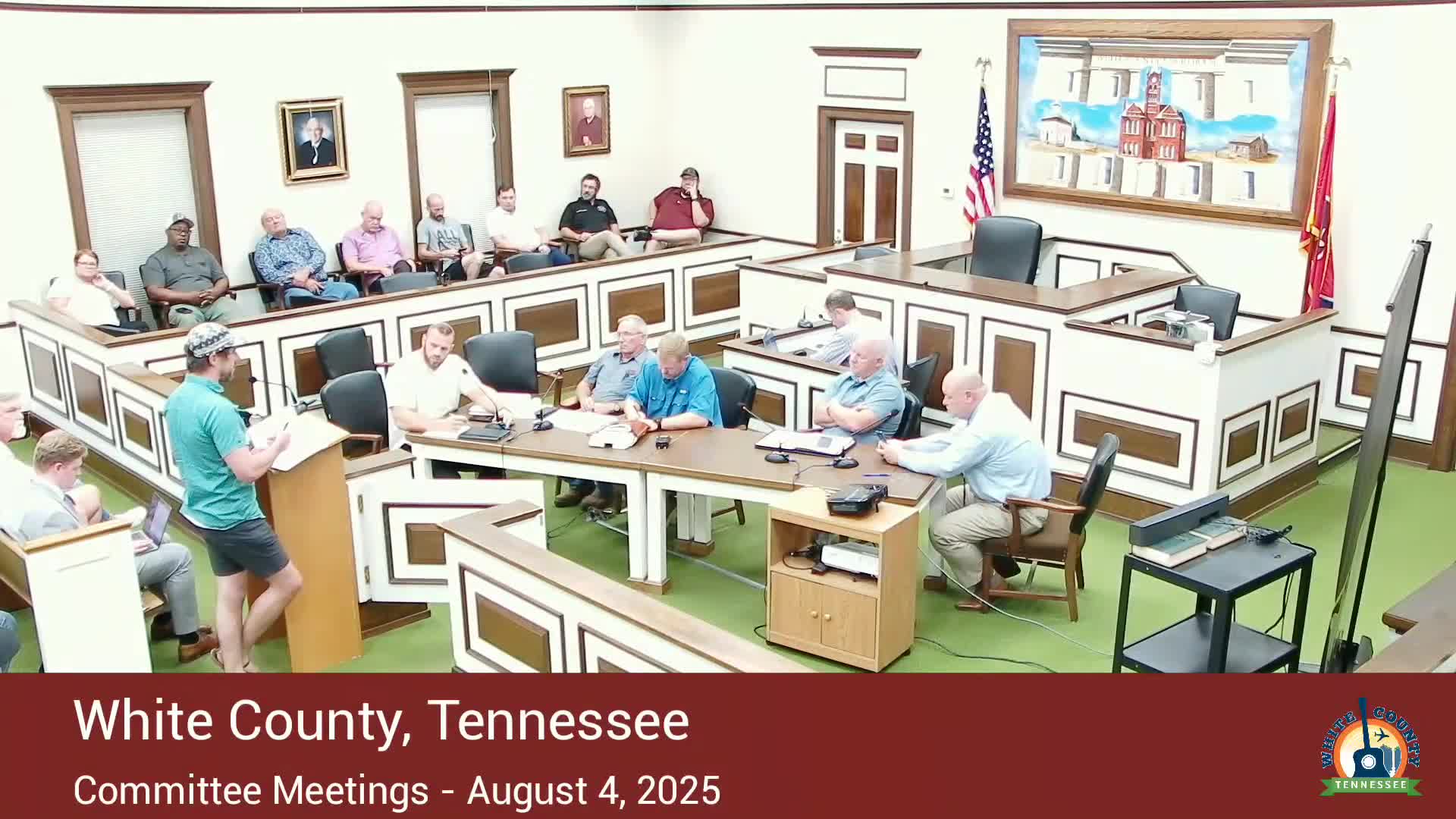Paramedics Demand Compensation Increase Amid Staffing Crisis and Budget Inefficiencies
August 05, 2025 | White County, Tennessee
This article was created by AI summarizing key points discussed. AI makes mistakes, so for full details and context, please refer to the video of the full meeting. Please report any errors so we can fix them. Report an error »

In the heart of White County, Tennessee, a recent County Commission meeting unfolded under the fluorescent lights of the local government building, where passionate voices echoed the concerns of both public servants and residents alike. The discussions centered around pressing issues, including the compensation of paramedics, budget transparency, and the implications of rising property taxes.
One of the most striking moments came from a paramedic who passionately advocated for better pay for emergency medical services (EMS) personnel. He highlighted the extensive training and responsibilities that paramedics undertake, often performing tasks that overlap with those of critical care nurses and even physicians. "We do things that nurses can't even do," he asserted, emphasizing the critical role paramedics play in the healthcare system. He warned that without competitive compensation, the county risks losing skilled professionals to other services, which could jeopardize the quality of care provided to the community.
The conversation then shifted to the county's budget, with residents expressing frustration over perceived inconsistencies and a lack of clarity. One resident pointed out discrepancies in budget documents, questioning the accuracy of reported figures and the need for a thorough audit. "We need a full independent and transparent audit," she urged, calling for accountability in how taxpayer dollars are managed. Her comments resonated with many in attendance, who echoed the sentiment that transparency is essential for trust in local government.
As the meeting progressed, discussions about property taxes surfaced, with residents voicing concerns about recent reassessments that have led to significant increases in their tax bills. One resident articulated the struggle of fixed-income individuals, particularly seniors, who may find it challenging to cope with rising costs. The commissioners were reminded that any increase in taxes could have a ripple effect, impacting not just finances but also the overall well-being of the community.
The meeting concluded with a sense of urgency for the commissioners to address these issues head-on. The call for better compensation for paramedics, the demand for budget transparency, and the need to consider the financial strain on residents all underscored the complexities of governing in a growing county. As the commissioners prepare to make decisions that will shape the future of White County, the voices of its residents serve as a poignant reminder of the delicate balance between fiscal responsibility and community welfare.
One of the most striking moments came from a paramedic who passionately advocated for better pay for emergency medical services (EMS) personnel. He highlighted the extensive training and responsibilities that paramedics undertake, often performing tasks that overlap with those of critical care nurses and even physicians. "We do things that nurses can't even do," he asserted, emphasizing the critical role paramedics play in the healthcare system. He warned that without competitive compensation, the county risks losing skilled professionals to other services, which could jeopardize the quality of care provided to the community.
The conversation then shifted to the county's budget, with residents expressing frustration over perceived inconsistencies and a lack of clarity. One resident pointed out discrepancies in budget documents, questioning the accuracy of reported figures and the need for a thorough audit. "We need a full independent and transparent audit," she urged, calling for accountability in how taxpayer dollars are managed. Her comments resonated with many in attendance, who echoed the sentiment that transparency is essential for trust in local government.
As the meeting progressed, discussions about property taxes surfaced, with residents voicing concerns about recent reassessments that have led to significant increases in their tax bills. One resident articulated the struggle of fixed-income individuals, particularly seniors, who may find it challenging to cope with rising costs. The commissioners were reminded that any increase in taxes could have a ripple effect, impacting not just finances but also the overall well-being of the community.
The meeting concluded with a sense of urgency for the commissioners to address these issues head-on. The call for better compensation for paramedics, the demand for budget transparency, and the need to consider the financial strain on residents all underscored the complexities of governing in a growing county. As the commissioners prepare to make decisions that will shape the future of White County, the voices of its residents serve as a poignant reminder of the delicate balance between fiscal responsibility and community welfare.
View full meeting
This article is based on a recent meeting—watch the full video and explore the complete transcript for deeper insights into the discussion.
View full meeting
